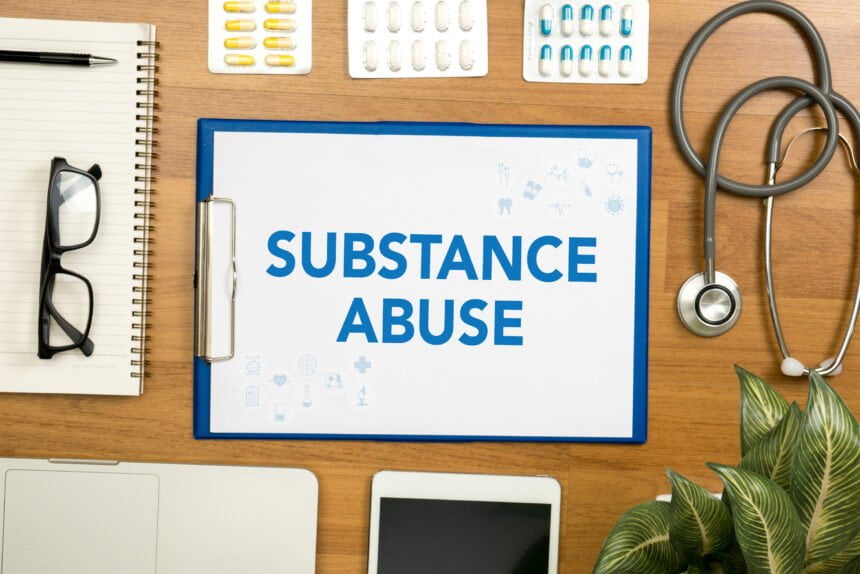Around one in five adults struggle with mental health issues. Many of those problems are due to substance abuse.
Relationships play a pivotal role in mental health, offering support, companionship, and a sense of belonging. However, when individuals grappling with addiction form relationships with others facing similar challenges, it can exacerbate existing mental health issues. Since 46.8 million Americans over the age of 12 have substance abuse problems, it shouldn’t be surprising to hear that many couples deal with these problems.
Shared addictive behaviors can reinforce harmful patterns, leading to heightened stress, anxiety, and feelings of isolation. Moreover, the complexities of addiction can strain relationships, hindering mutual support and exacerbating co-dependency dynamics. In such cases, seeking professional guidance and support networks that promote healthier coping mechanisms becomes crucial for navigating the intertwined challenges of addiction and mental health.
Can love genuinely bloom and thrive between two people with an addiction? The throes of this destructive cycle are a powerful force that wreaks havoc on all aspects of life, including romantic connections. The challenges they face may seem impossible when both partners struggle with substance abuse.
But love can be a powerful motivator! Some partners find strength in each other to overcome both of their compulsions. So, finding a way to get support together is a decisive step toward recovery. Couples rehab in California and throughout the US offer programs that help them heal.
So, the question remains: Can romantic relationships between people with an addiction work? Let’s explore the challenges and potential paths to success.
The Hidden Toll: How Addiction Damages Families
Substance abuse can leave a trail of emotional wreckage in its wake. It’s like watching a vase shatter into several pieces. Couples rehab or therapy acts like a skilled restorer. They enable people to pick up the pieces of their union and move forward.
Sometimes, the damage isn’t always evident. Here are some signs that addiction may be harming your bond:
● Financial strain or hiding money.
● Hidden drugs, alcohol, or paraphernalia around the house.
● Excessive partying or neglecting responsibilities.
● Broken promises, infidelity, or missing important family events.
● Putting yourselves or your children at risk by driving under the influence.
● Inability to hold each other accountable or maintain employment.
● Developing health problems or neglecting physical well-being.
● Constant arguments fueled by the consequences of addiction.
● Relying on substances to express affection or have difficult conversations.
If you recognize these signs in your connection, know you’re not alone. Professional treatment can equip you with the tools to heal and rebuild a stronger connection.
Hope After Addiction: Rebuilding Together
The first step is always the hardest, but admitting a problem and asking for help is huge! Even though the dark cloud of dependence casts a long shadow over relationships, there is a way to rebuild.
Broken trust, arguing, selfish behavior — these are a few signs of people who struggle with some sort of dependency. These behaviors chip away at the foundation of any partnership and can leave emotional scars and a trail of broken promises.
Fortunately, there is hope for partners to be able to fight together while rebuilding their lives. Qualified treatment centers are a safe space for couples to begin this healing process. These facilities provide the tools and support needed to achieve and maintain sobriety.
Beyond Sobriety: Couples Addiction Therapy
Couples addiction counseling is an excellent tool for collective healing. There have been many studies on Behavioral Couples Therapy (BCT). The consensus suggests including your partner can boost your chances of rehabilitation.
A skilled therapist acts as a guide for these individuals. They facilitate open, honest discussions about their challenges. Those who go through this counseling should know it’s more than just talking. It also allows couples to develop healthy coping mechanisms to manage cravings.
Therapists will assist with building relapse prevention strategies based on mutual understanding and support. They can also learn how to establish clear boundaries, which they can use to navigate triggers and focus on healing.
Love and Healing: The Journey Begins Now
Is there hope for couples battling dependency to rebuild a healthy bond? It’ll take courage, determination, and dedication, but the answer is yes! While these unhealthy habits may cast a long shadow, don’t despair; with the proper support, partners can rebuild trust, heal old wounds, and emerge stronger than ever.
If you’re struggling, know that you’re not alone. Take the next step today! Research treatment centers in your area, or talk to your doctor about the available resources. Remember, love can be a powerful motivator on the path to recovery. Reignite the flame together and remove substance addiction from your relationship.

